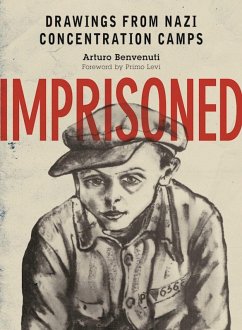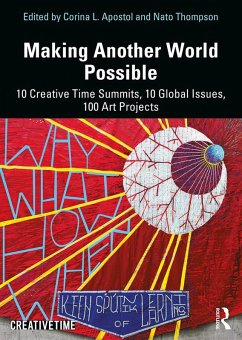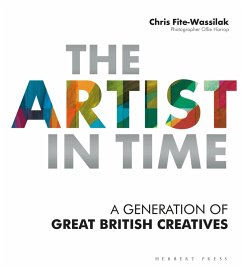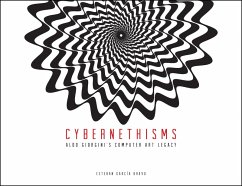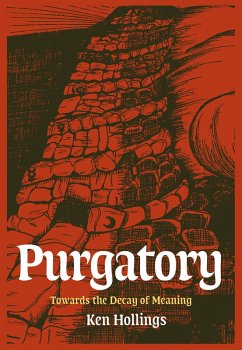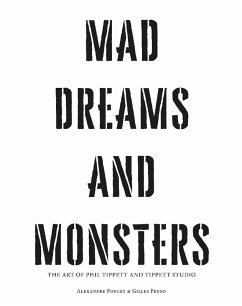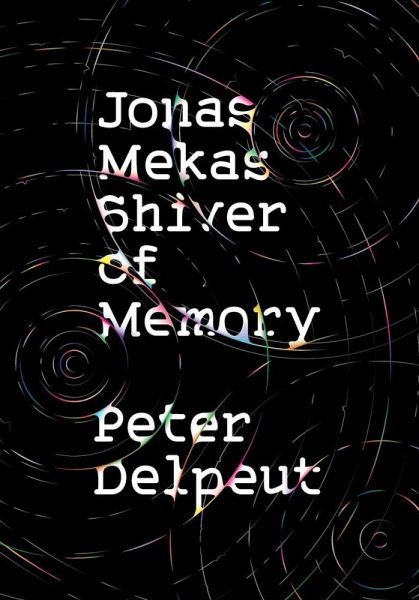
Jonas Mekas, Shiver of Memory (eBook, ePUB)

PAYBACK Punkte
4 °P sammeln!
The controversy over filmmaker Jonas Mekas's memories of his WWII Lithuanian youth are delicately and humanely approached in this book-length essay by a Mekas cinephile.Stemming from a New York Review of Books article by a Jewish historian condemning the widely-beloved Jonas Mekas, known as the 'Godfather of American avant-garde cinema', this essayistic, self-reflective, and analytic book flowers into an inquiry about memory and forgetting; the moral compass of the future that cannot find its bearing in the past; the ability of art to witness; and how to write the history of events too traumat...
The controversy over filmmaker Jonas Mekas's memories of his WWII Lithuanian youth are delicately and humanely approached in this book-length essay by a Mekas cinephile.
Stemming from a New York Review of Books article by a Jewish historian condemning the widely-beloved Jonas Mekas, known as the 'Godfather of American avant-garde cinema', this essayistic, self-reflective, and analytic book flowers into an inquiry about memory and forgetting; the moral compass of the future that cannot find its bearing in the past; the ability of art to witness; and how to write the history of events too traumatic for a just accounting.
Perpetrator and victim, bystander and accomplice, those who testify and those who refuse, the traumatized and those who dare not speak of the dead. These are among the vantage points considered in Shiver of Memory, which addresses audiences through the microcosm of one exiled filmmaker's life and the traces of his memory. Examining Mekas's poetry, autobiographical writing, and films, Delpeut travels back and forth between Mekas's boyhood in a Soviet-occupied borderland, where his first picture was reputedly destroyed by the passing Soviet army, to his youth in German-occupied territory during war and genocide working as a poet and for the Resistance yet as an editor of an anti-Semitic-inflected newspaper to his life as young Lithuanian filmmaker, Fluxus artist, and immigrant to the United States who became obsessed with recording the details of everyday life so that they might be relived in all their beauty and contradiction through the magical medium of film.
[Read more]
Writes Peter Delpeut, Reduction is the most virulent accomplice of moral judgment. What the 'Mekas case' taught me above all is that the moral compass can easily run wild, confused by all those magnetic fields of memory that surround it. So this has turned out to be a very personal essay, in which my quest is central. Every change of perspective triggers a different moral judgment. In a world that is increasingly trying to force us to come up with unequivocal answers, this may be a consoling message.
Author and filmmaker Delpeut was heavily influenced by Mekas's films and the Anthology Film Archives that Mekas founded. He revolves the prism of Mekas's life to shine a light on the central operations of memory and how Mekas's filmography interfaced with a barely-spoken-of trauma. Mekas's recollections of his WWII youth, interrogated by Michael Casper in the NYRB, become stepping stones for Delpeut over a dark lake enshrouded in mystery with no bottom but a sure number of victims from Mekas's provincial area: the 2400 Jewish men, women and children herded together in the center of Birai and taken in small groups to the Astravas forest, not far from the town on the shore of the lake and murdered on August 8, 1941.
While Mekas never participated in the horrors, questions remain about what he knew and what he refused to let himself know, as well as what his artist's soul necessitated that he forget in order to live.
Stemming from a New York Review of Books article by a Jewish historian condemning the widely-beloved Jonas Mekas, known as the 'Godfather of American avant-garde cinema', this essayistic, self-reflective, and analytic book flowers into an inquiry about memory and forgetting; the moral compass of the future that cannot find its bearing in the past; the ability of art to witness; and how to write the history of events too traumatic for a just accounting.
Perpetrator and victim, bystander and accomplice, those who testify and those who refuse, the traumatized and those who dare not speak of the dead. These are among the vantage points considered in Shiver of Memory, which addresses audiences through the microcosm of one exiled filmmaker's life and the traces of his memory. Examining Mekas's poetry, autobiographical writing, and films, Delpeut travels back and forth between Mekas's boyhood in a Soviet-occupied borderland, where his first picture was reputedly destroyed by the passing Soviet army, to his youth in German-occupied territory during war and genocide working as a poet and for the Resistance yet as an editor of an anti-Semitic-inflected newspaper to his life as young Lithuanian filmmaker, Fluxus artist, and immigrant to the United States who became obsessed with recording the details of everyday life so that they might be relived in all their beauty and contradiction through the magical medium of film.
[Read more]
Writes Peter Delpeut, Reduction is the most virulent accomplice of moral judgment. What the 'Mekas case' taught me above all is that the moral compass can easily run wild, confused by all those magnetic fields of memory that surround it. So this has turned out to be a very personal essay, in which my quest is central. Every change of perspective triggers a different moral judgment. In a world that is increasingly trying to force us to come up with unequivocal answers, this may be a consoling message.
Author and filmmaker Delpeut was heavily influenced by Mekas's films and the Anthology Film Archives that Mekas founded. He revolves the prism of Mekas's life to shine a light on the central operations of memory and how Mekas's filmography interfaced with a barely-spoken-of trauma. Mekas's recollections of his WWII youth, interrogated by Michael Casper in the NYRB, become stepping stones for Delpeut over a dark lake enshrouded in mystery with no bottom but a sure number of victims from Mekas's provincial area: the 2400 Jewish men, women and children herded together in the center of Birai and taken in small groups to the Astravas forest, not far from the town on the shore of the lake and murdered on August 8, 1941.
While Mekas never participated in the horrors, questions remain about what he knew and what he refused to let himself know, as well as what his artist's soul necessitated that he forget in order to live.
Dieser Download kann aus rechtlichen Gründen nur mit Rechnungsadresse in A, D ausgeliefert werden.




